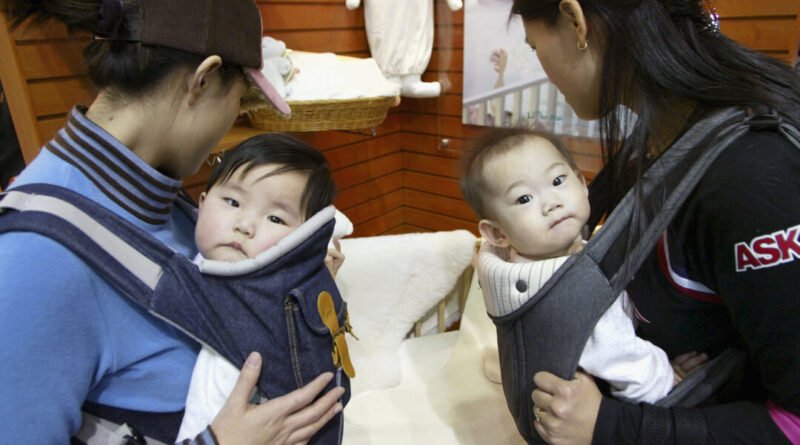South Korean President Yoon Suk Yeol recently declared a demographic national emergency, vowing to make drastic policy adjustments to tackle the country’s ultra-low birth rate.
“The most fundamental and fatal problem is the demographic crisis caused by ultra-low birth rates.” Mr. Yoon
said on June 19, during a Presidential Committee on Aging Society and Population Policy meeting in Gyeonggi Province.
South Korea
recorded a total fertility rate of 0.72 last year, setting a new low since 1983. The country’s total fertility rate has fallen below the necessary 2.1 to maintain its population of 51 million, according to KOSIS, the national statistics portal of the Korean Statistical Agency.
Mr. Yoon promised to implement a raft of approaches to boost the fertility rate, with a focus on three major areas: work-family balance, childcare, and housing.
Proposed steps include increased parental leave allowances, extended paternity leave, flexible work hours, increased tax credits and ease of educational burden on parents, according to a government policy
press release.
In addition, the government plans to introduce low-interest loans to newlyweds for home purchases and rental funds with additional preferential interest rates extended for each birth.
The press release states a new government ministry will be created to implement the proposed policy and budget and tackle the demographic crisis.
Since the outbreak of COVID-19 in 2020, the number of deaths has exceeded the number of births, resulting in a natural decline in the total population for the fourth consecutive year.
As the birth rate continues to decline, the aging populous is becoming a significant challenge.
In 2023, the total number of senior citizens aged 70 and above exceeded the total number of youths between 20 and 29 for the first time,
according to a survey by South Korea’s Ministry of Administration and Security.
As South Korea’s population continues to age, there is a growing call for raising the age standard for the elderly. The City of Seoul has promoted the option of raising the standard age for the provision of various welfare benefits for the elderly from 65 to 70 years old and above.
According to a
report released by the City of Seoul on June 17, by 2026, the number of individuals aged 65 in Seoul will exceed 20 percent of the city’s total population, which could potentially lead to the city becoming an ultra-age metropolis.
The proportion of employed individuals aged 70 in South Korea is also on the rise. Data by KOSIS
showed that as of January this year, 24.5 percent of the population aged 70 and above are still in the workforce.
The data further shows the proportion of the total population aged 70 and above who are still employed has increased to 5.6 percent,
up from 5.1 percent in January 2023.





